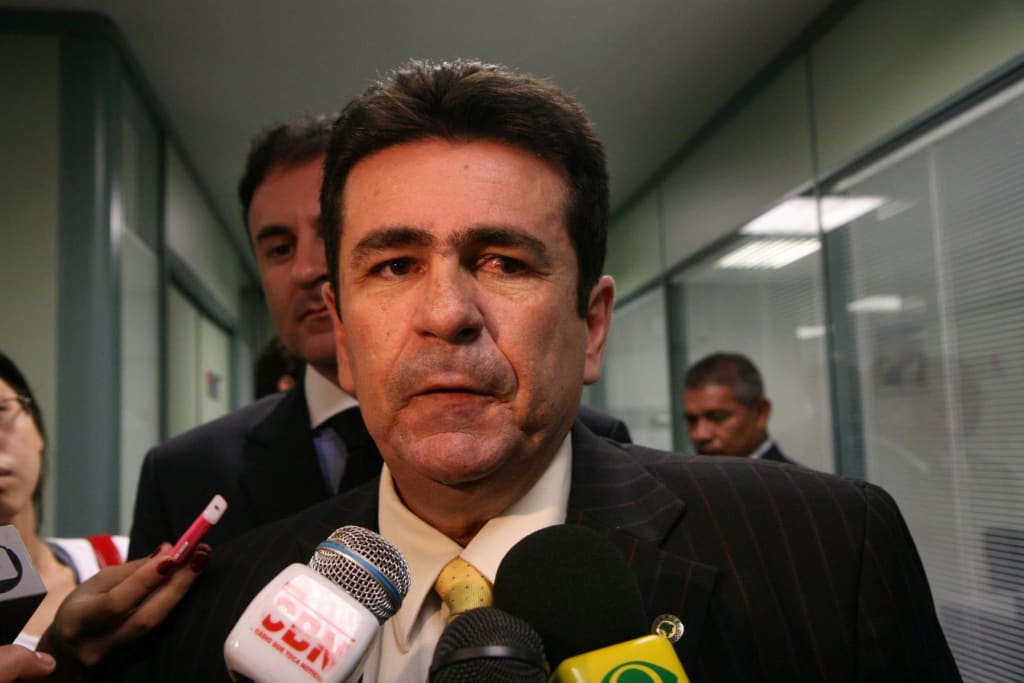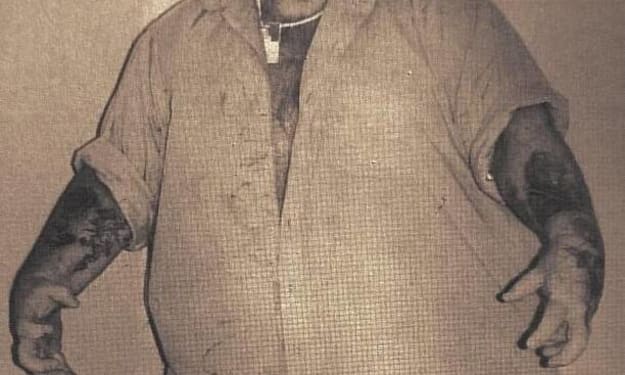Wallace Souza: The Crime Presenter Who Orchestrated Murders for Ratings
Self arranged show

In a shocking twist that blurred the lines between reality and fiction, Wallace Souza, a popular Brazilian television presenter known for his true crime program on unsolved murders, was revealed to be orchestrating the very crimes he reported on. This astonishing revelation captivated global audiences and highlighted the extreme lengths some individuals will go to achieve fame and success. Souza's story is a disturbing and intricate tale of ambition, deception, and the dark side of media sensationalism.
The Rise of Wallace Souza
Wallace Souza began his career as a police officer in Manaus, the capital of the Amazonas state in Brazil. His transition from law enforcement to television occurred when he started hosting a local TV show called "Canal Livre." The show quickly gained popularity due to its raw and sensational coverage of crime scenes, often arriving at the locations of violent incidents before the police. Souza's charisma and apparent dedication to exposing crime in the city earned him a large following and significant influence.
"Canal Livre" was unique in its approach, providing graphic and unfiltered content that both shocked and fascinated viewers. The show often featured interviews with victims' families, on-the-spot crime scene footage, and intense commentary by Souza. This formula proved to be highly successful, catapulting Souza into the limelight and making him a household name in Manaus and beyond.
The Dark Side of Fame
However, as Souza's fame grew, so did suspicions about the uncanny accuracy and timeliness of his reports. It seemed implausible that his team could consistently be the first to arrive at crime scenes, often even before law enforcement. Whispers and rumors began circulating about Souza's potential involvement in criminal activities, but concrete evidence remained elusive.
The turning point came in 2008 when former police officers and ex-criminal associates came forward with damning allegations against Souza. These insiders claimed that Souza was not merely reporting on crimes but orchestrating them to boost his show's ratings. The accusations suggested that Souza had formed a criminal organization responsible for drug trafficking, extortion, and, most shockingly, orchestrating murders.
The Investigation and Revelations
Brazilian authorities launched an extensive investigation into Souza's activities. They uncovered a web of criminal enterprises linked to him, revealing that his media empire was built on bloodshed and corruption. Evidence indicated that Souza and his associates were responsible for numerous murders, which were strategically planned to ensure "Canal Livre" had exclusive and sensational content.
The most damning piece of evidence was Souza's alleged involvement in the murder of an ex-gang member, who had threatened to expose Souza's criminal operations. Authorities discovered that Souza had ordered the hit, ensuring his team arrived first at the crime scene to capture exclusive footage. This blatant manipulation of reality for entertainment shocked and horrified the public.
In addition to murder charges, Souza faced accusations of drug trafficking and witness tampering. His criminal organization was believed to have connections with local drug lords, using his media influence to intimidate rivals and maintain control over the illegal drug market in Manaus.
The Trial and Conviction
Wallace Souza was arrested and brought to trial, facing charges that included murder, drug trafficking, and racketeering. The trial was a media spectacle, with extensive coverage detailing the sordid details of Souza's double life. Prosecutors presented overwhelming evidence of his involvement in orchestrating crimes, including testimonies from former associates, forensic evidence, and documented communications linking him to criminal activities.
In 2012, Souza was convicted and sentenced to prison. His fall from grace was swift and brutal, stripping him of his public image as a crime-fighting hero and revealing him as a manipulative criminal mastermind. The conviction sent shockwaves through the media industry and led to increased scrutiny of the ethical boundaries in crime reporting.
The Impact on Media and Society
The Wallace Souza scandal had far-reaching implications for both the media industry and society at large. It underscored the potential dangers of media sensationalism and the ethical responsibilities of journalists and content creators. The case prompted a reevaluation of how crime is reported and the extent to which media coverage can influence public perception and behavior.
In Brazil, the scandal led to calls for stricter regulations on crime reporting and greater oversight of media practices. It also highlighted the need for a clear distinction between entertainment and news, emphasizing the importance of journalistic integrity and accountability.
For the public, Souza's story served as a cautionary tale about the perils of unchecked ambition and the seductive allure of fame. It demonstrated how the pursuit of ratings and popularity can corrupt individuals and institutions, leading to devastating consequences.
Conclusion
Wallace Souza's story is a chilling reminder of the thin line between reality and fiction in the media world. His actions, driven by a desire for fame and success, resulted in a series of heinous crimes that shocked a nation and exposed the dark underbelly of media sensationalism. The legacy of his actions continues to influence discussions about media ethics and the role of journalism in society, reminding us of the critical need for integrity, transparency, and accountability in all forms of media.
About the Creator
Enjoyed the story? Support the Creator.
Subscribe for free to receive all their stories in your feed. You could also pledge your support or give them a one-off tip, letting them know you appreciate their work.






Comments
There are no comments for this story
Be the first to respond and start the conversation.